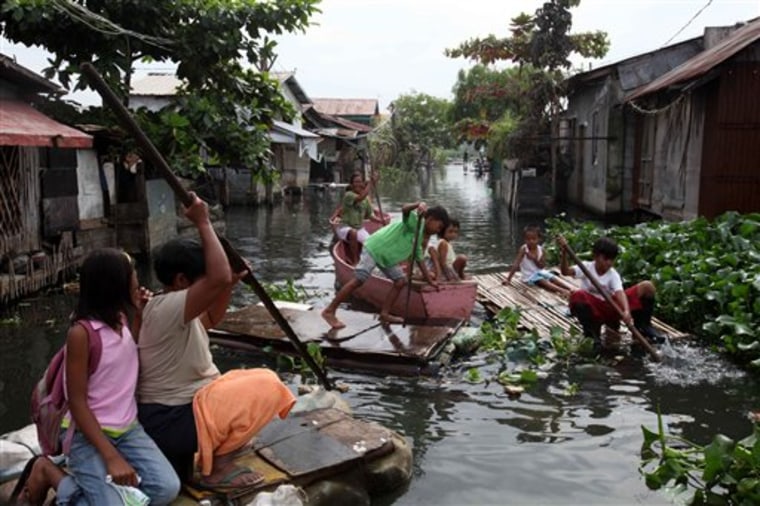European Union leaders agreed Friday to contribute to a $74 billion annual aid fund that would help developing nations adapt to climate change — but failed to set a firm figure for exactly how much the EU would pay.
"We are ready to offer if our partners deliver" and put up other financing that the EU says poor nations will need by 2020, European Commission President Jose Manuel Barroso said at the end of a two-day EU summit.
Swedish Prime Minister Fredrik Reinfeldt said Europeans "now have a very strong negotiating position" to seek tight greenhouse gas emissions cuts at United Nations talks in Copenhagen, Denmark, in December.
He said EU nations would not be required to contribute to the fund before 2013, bowing to demands by nine poorer EU member states strained by financial downturn.
Failure to agree on a figure now leaves the European Union without a firm promise of funding to tempt other nations — above all the world's two largest polluters China and the United States — into tight greenhouse gas emission cuts at the U.N. climate talks in December.
'Not at any price,' says Hungary
Hungary's Prime Minister Gordon Bajnai led the opposition by poorer EU nations, saying that sharing the aid costs between all 27 EU nations "is not acceptable" for the bloc's poorer, eastern members.
"We want a result ... but not at any price," Bajnai said.
The EU — a self-proclaimed leader in setting global climate change policy — is also urging other rich countries to match its pledge to cut emissions by 20 percent from 1990 levels by 2020, and says it will go even further and cut up to 30 percent, if other rich countries follow suit.
The Europeans also want to reduce aviation emissions by 10 percent and shipping emissions by 20 percent, compared with 2005 levels.
The United Nations is looking to create the global fund to avert scientific predictions of potentially catastrophic changes in sea levels, weather patterns and water resources.
The U.N., environmental groups and even poorer nations themselves argue that a substantial aid package could help persuade the developing world to join a new global climate deal, meant to replace the 1997 Kyoto Protocol on cutting greenhouse gas emissions.
The world's wealthy nations are seeking broad controls on emissions from all countries in the new pact. Developing countries say tough emissions limits would hamper their growth, and industrialized nations — who are responsible for much of the carbon dioxide released into the atmosphere — should carry most of the burden.
